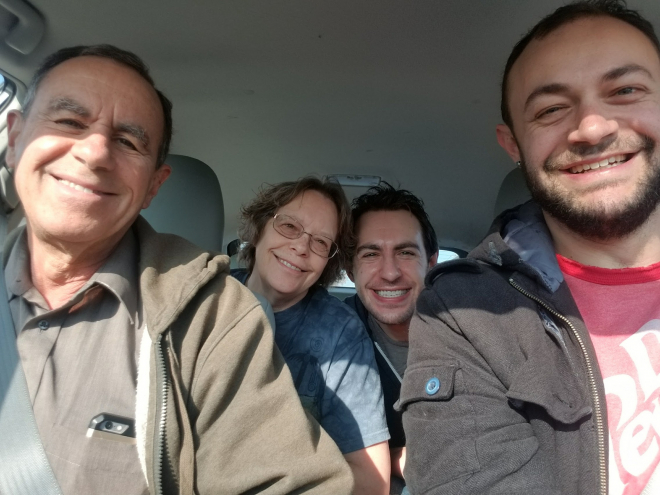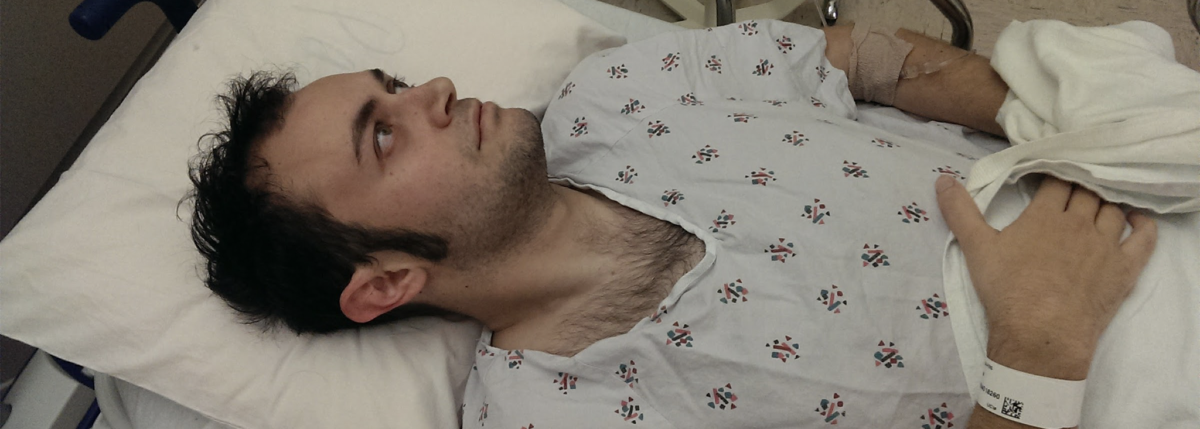My Father’s Disease
Lifelong reality
I have no memories of my father without diabetes. My father was diagnosed with type 1 in 1989 when I was 3 years old. Diabetes and Papa Frank were always hand in hand, one and the same. As a chemistry professor and academic, he seemed to get a thrill from stable numbers and consistent control and he would never shy away from talking about it.
My father is incredibly loving, especially to his family. He loves to share a story or an exciting idea. I’m blessed to have grown up with such a loving, kind-hearted father—at no point were aggressive assertions of masculinity expected from me nor my brother. He is also very particular, specific and regimented—presumably from having type 1 for so many years, or maybe, that’s just how he is.
Growing up, my father would work as a professor and come home around 5:00 p.m. And he had a list of maybe 10 meals he would prepare, with occasional variations. He developed a “square meal” that was his baseline, average, expected, protein-and-vegetable rich meal. No snacks or sugary beverages, caution and restriction while eating out—all told, a marvelous person with diabetes. As a child, I don’t recall a moment when his health was in danger or his diabetes management was questioned. And it wasn’t a mystery; my father loved to disclose his diabetes management. A dinner out would often end with a round of, “Guess what my blood sugar is?!” And as a child, I knew enough about the symptoms of hyper- and hypoglycemia to make a prediction. When my father was on target after dinner, he was almost elated. The 6.4 mmol/L 115 mg/dL was a symbol of harmony for me. If my father was happy, I was too.
Kindred spirits
I always saw myself in my father and he was always quick to relate to me. We both had one older brother, which created a powerful and unique dynamic of understanding. But it wasn’t just this. My father loved identifying our similarities and I loved being recognized, being seen, and losing that feeling of being alone. Today, I am 33, and this has remained ever so consistent. There have always been physical and emotional similarities between us. So, echoing my father, throughout my life, I imagined what it would be to have type 1. The poking and prodding of needles appeared horrific. And I often wrote it off, as he would be the first to remind us that he was 44—later in life—when he was diagnosed. It happened the same way with his aunt and grandmother.
But it happened to me at 27, earlier than the other members in my family. I was in my second year of graduate school for social work and marvelously stressed. I went into diabetic ketoacidosis (DKA) on December 27, 2013 while visiting my family in Fresno for the holidays. At one point in the weeks prior, I recognized some of the symptoms but attributed them to stress from graduate school and chose to ignore them. My family didn’t recognize the DKA since no one they knew had experienced it before, but they followed their instincts and my parents took me to the ER as I continued to get worse.
While traumatizing, it couldn’t have happened at a better time of year. After three days in the hospital, I took a week off from my internship in San Francisco and stayed home with my parents, acting as my father’s diabetes mentee. It was emotional and challenging and confusing, but I was so thankful not to have to do this alone.
So during that week, I dove into diabetes management, meals and lifestyle adjustments. After meeting with a few endocrinologists and health educators, I learned about carb counting and daily totals. My father doesn’t carb count; since he has such a solid meal regimen, he knows how many units of insulin to take to maintain a functional rhythm. As I was learning how to bolus, he would lean over my shoulder, look at my plate and create an approximation. My father owns his decision to use his square meal method instead of carb counting, stating, “I see it not as a calculation, but as an art.” I don’t think he’s wrong, but it felt divergent from the messaging I received from medical professionals. The nurse would tell me one thing but my Papa would tell me something else. I needed to make my own way.
The same but different
We were never apart, but diabetes brought my father and I closer together. To this day, it gives us something to talk about. I’m often captivated by his stories of obscure blood sugars at an inconvenient time, and I can share mine. When I’m fed up with abnormalities, my father is always there for support and advice. We learn together about modern technology to help our management and share information. Plus, most importantly, by growing up with a parent with diabetes, he normalized the subject matter. I speak about my disease, my insulin pump and management style with glee to my coworkers and friends. I think I notice a little bit of my father come through when I speak with good friends about a successful bolus for a carb-heavy meal.
Don’t get me wrong, we are also different people. I’m now 33 and don’t have children, so my lifestyle remains much more variable than my father’s ever appeared. My mealtimes are quite inconsistent, and my diet often fluctuates; I drink, I travel, I stay up late. But to this day, when he and I are eating the same meal and the same portion, it’s nearly the exact same size bolus that we give ourselves. I truly have my father’s disease. And that means I carry my family line ever so truly.
It always meant so much that I didn’t have to learn this alone. I wish for every parent of a child with diabetes to not just have compassion, but empathy and robust understanding, to normalize frustrations of the disease and its limitations for that child. I learned recently that type 1 isn’t always genetic, and often diagnosed earlier in life. The Frank family pancreas seems to just give out after a while, leaving us diagnosed later in life. But that makes our situation all the more unique, rare and maybe even, special.
Check out a father’s perspective—read A Dad’s Letter to Type 1.





